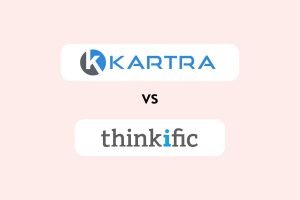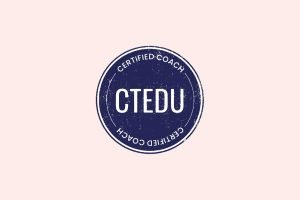Last updated on May 22, 2023
As life coaches, we are full of knowledge about how to set our clients up for successful and fulfilling careers. But maybe it’s time we take a spoonful of our own medicine. As life coaches, we often use tools like skills inventories with clients, but it can be just as helpful for your own business to do this exercise for yourself.
There’s an old expression that applies here: “The cobbler’s children have no shoes.” In other words, the shoemaker is spending so much of his time and resources tending to the needs of his clientele that he doesn’t have time or the materials to make shoes for his own children.
The same goes for life coaches. Sometimes we’re so busy helping other people reach their career goals that we neglect to take stock of our skills and start on an improvement plan of our own. And, really, we don’t have any excuse. As life coaches, we know first-hand the benefits of crafting a skills inventory, helping clients identify their strengths and weaknesses, and creating a plan to take advantage of this information.
So, much in the same way that we encourage clients to step back and take stock, we need to carve out some time for ourselves in the interest of making our coaching skills even better than they are.
Crafting a Skills Inventory
Chances are that you already use a skills inventory process with your clients. For comparison, I offer my own version. And it may provide inspiration for going through this helpful exercise for your own career.
Creating a skills inventory requires four main steps: setting up a worksheet, selecting which skills to assess, performing a skills assessment, and reflection. Here is a step-by-step walkthrough:
- Designing a worksheet: The worksheet you will need for this exercise requires four columns along the top of the x-axis: one for the skills you are assessing, one to rank how strongly you possess this skill, one for how much you enjoy utilizing it, and one for how much room for development you think you have regarding that skill.
- Choosing the skills to assess: Picking what skills to include in your skills assessment is one of the most important steps in this exercise. When we do this with clients, we’re asking them to encapsulate and essentialize, which helps them define the skills that their jobs really entail. There is no correct number of skills to include in this column, but the more skills you assess, the better understanding you will have of your skill set.

Since we are using this exercise in the context of life coaches, the skills should have attributes a life coach needs. The list may include active listening, effective written and verbal communication, attention to detail, preserving confidentiality, paraphrasing, time management, marketing, storytelling, and business management.
- Performing the skills assessment: Go through the skills and decide how you will assess your strength in each skill. Some may require a skills test, client feedback, or simply a self-assessment. After gathering the required information, score each skill on a scale from 1 to 10, with 1 meaning “poor” and 10 meaning “excellent.”
Keep in mind that honesty is essential here. Often, we can tell when clients are deluding themselves, and we try to find ways of bringing them to a more realistic understanding of their strengths. Therefore, it’s essential that we be honest with ourselves if we are really going to get something concrete out of this exercise.
- Reflection: Take a look at your scores and determine which skills are the highest scoring in each column. In the column where you ranked how strongly you possess the skill, the highest ranking skills here are your strengths. In the column where you ranked how much room for development you have in this skill, the lowest ranking skills are your gaps or growth opportunities.
Maximizing the Results
Now that you have completed the exercise, it’s time to apply what you learned to your life coaching business. Often this means taking a good, hard look at the things you’re either not that great at or simply don’t enjoy doing. That might mean you hire someone to fill in the gaps or delegate some tasks to an outside vendor.
For example, you might hire a part-time assistant to handle your emailing and communication if your skill inventory shows that writing is one of your weaknesses. Or maybe the bookkeeping and administrative tasks are piling up because those are tasks that you truly dread. It might be time to farm those functions out to a professional.

Perhaps, at the moment, you don’t currently have the funds to hire more employees. Another great way to maximize the results of this exercise is to seek additional training and experience in the gaps in your skill set. There are plenty of free online training courses you can use to fill in those gaps and improve your training techniques.
A skills inventory can also lead to changes and growth in your customer base. Your various core competencies help you bring in different types of clients, and expanding those core competencies will correspondingly broaden your pool of potential clients. For example, if you are trying to grow your business to coach CEOs and business leaders, you might find ways to learn about and practice coaching leadership skills in others to help people improve their public speaking skills.
It’s Personal
The life coaching business is an extremely personal profession. We know better than anyone that sometimes, it takes looking in a mirror to better yourself. A skills inventory is a great way to do that and to determine the best ways for you to improve as a coach. That should be an ongoing process, so try to update your skills inventory every few years as you build up your business and gain more experience.
Editor’s Note: Now that you know what skills you’d like to brush up on, take the next step toward improvement with this Professional Skills for the Workplace program from UC Davis.

Lisa Baker
Lisa L. Baker is a Personal and Executive Coach and founder of life coaching company Ascentim. Prior to focusing on helping others reach their potential, Lisa worked as a senior executive for several Fortune 500 companies including Synchrony, Microsoft, and Citigroup. This year, Lisa was named a 2022 Brightside Trailblazer in Business by Brightside Global Trade.























Be First to Comment